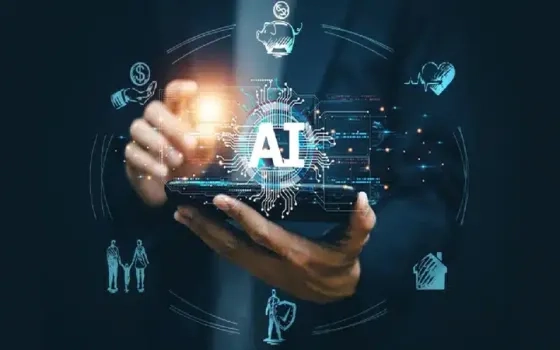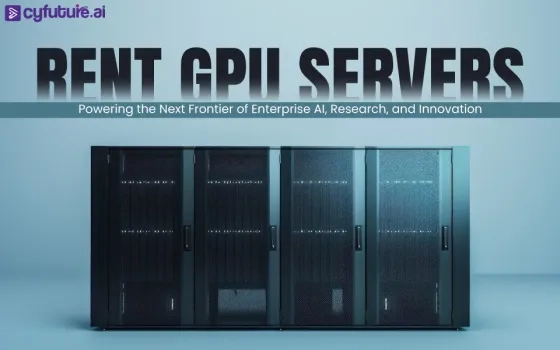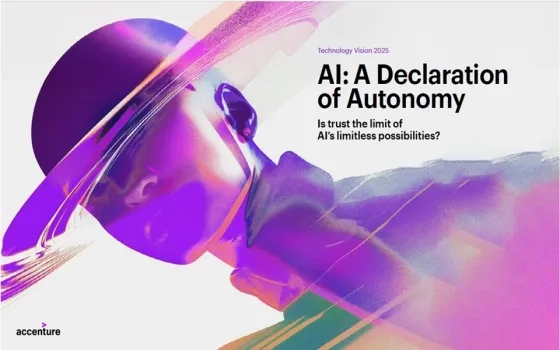Artificial intelligence (AI) has created new opportunities in recent years. Industries are being affected, making previously unthinkable activities like space travel and melanoma diagnosis viable. As a result, there has also been a continuous rise in AI careers. LinkedIn said AI professionals would be among the 'jobs on the rise' in 2023. The 10 fantastic and well-paying AI jobs you can pursue in 2023 and beyond are discussed in this blog post. Also, do have a look at the online data science certification course if you want to start a career in data science and AI.
Is a Career in Artificial Intelligence a Good Fit?
- Many AI careers are available, with hiring increasing by 32% in recent years.
- A significant talent shortage exists because insufficient qualified applicants are submitting applications for open positions.
- AI professionals get hefty salaries—well over $100,000.
- Since the field of AI is constantly growing, there are many opportunities for career advancement.
- AI careers are many; you might become a researcher, practitioner, consultant, independent contractor, or even create your own AI products.
What Is the Future of AI Jobs?
The future of AI employment is really bright. The US Department of Labor Statistics anticipates an 11% increase in computer science and information technology employment between 2019 and 2029. The industry will gain roughly 531,200 new employees as a result. It would seem that this is a conservative estimate. "AI and Machine Learning Specialists" are the second most in-demand profession according to the World Economic Forum.
As the industry matures, AI jobs will diversify, increase in quantity, and become more complicated. This will open up opportunities for experts, including novice and senior researchers, statisticians, practitioners, experimental scientists, etc. The future of moral AI is also brightening.
What AI Jobs Can You Pursue?
Artificial intelligence is a young and specialized field, yet many different careers exist. There are many different types of careers in AI, each requiring a unique set of qualifications. Let's examine each of the top ten in turn.
-
Machine Learning Engineer:
Data scientists and software engineers work together to create the field of machine learning engineering. Using big data technologies and programming frameworks, they produce scalable data science models capable of handling terabytes of real-time data and production-ready.
Qualifications suitable for work as a machine learning engineer include data science, applied research, and software engineering. Applicants for AI positions should have a strong mathematical foundation and be knowledgeable in deep learning, neural networks, cloud applications, and Java, Python, and Scala programming. Understanding IDE software development tools like Eclipse and IntelliJ is also beneficial.
-
Data Scientist:
Data scientists collect data, analyze it, and make judgments for a number of purposes. They utilize a variety of technical procedures, tools, and algorithms to draw information from data and identify significant patterns. This could entail anything as simple as spotting anomalies in time-series data or something more complicated like making predictions about the future, giving advice. The following qualifications are crucial for a data scientist:
- For example, a graduate degree in statistics, computer science, or mathematics.
- Statistical analysis and the unstructured data comprehension
- Having familiarity with cloud-based solutions like Hadoop and Amazon S3
- Proficiency with coding languages like SQL, Python, Perl, and Scala.
- Working knowledge of MapReduce, Spark, Pig, Hadoop, and Hive.
-
Business Intelligence Developer:
BI developers look into complex internal and external data to find trends. For instance, a business that provides financial services could be a person who keeps track of stock market data to aid in investment selection. This might be someone who keeps an eye on sales patterns for a product company to help with distribution plans.
Business intelligence developers, unlike data analysts, do not construct reports. In order to use dashboards, business users are usually in charge of creating, modeling, and managing complex data on readily accessible cloud-based data platforms. Specific skills are expected of a BI developer:
- Possessing expertise in SQL, data mining, and similar areas.
- BI tool knowledge, such as Tableau, Power BI, etc.
- Powerful technical and analytical abilities
-
Research scientist:
A research scientist is one of the AI occupations with the highest academic demands. They pose original, thought-provoking queries for AI to respond to. They are specialists in various fields related to artificial intelligence, such as statistics, machine learning, deep learning, and mathematics. Like data scientists, researchers also require a computer science doctorate.
Organizations looking to hire research scientists to anticipate them to be well-versed in these fields, as well as in graphical models, reinforcement learning, and natural language processing. Benchmarking expertise and familiarity with parallel computing, distributed computing, machine learning, and artificial intelligence are preferred.
-
Big Data Engineer/Architect:
Big data engineers and architects build ecosystems allowing efficient connectivity among many business verticals and technologies. Although big data engineers and architects are often entrusted with planning, creating, and developing big data environments on Hadoop and Spark systems, this profession may feel more complicated than that of a data scientist.
Most employers prefer professionals with a Ph.D. degree in mathematics, computer science, or a closely related field. Yet, because this is a more practical role than, for example, a research scientist, practical experience is generally regarded as a vital substitute for a lack of academic degrees. Big data engineers require programming knowledge in C++, Java, Python, or Scala. Also, they must learn about data migration, visualization, and mining.
-
Software Engineer:
For AI applications, software engineers create software. They combine development operations such as writing code, continuous integration, quality control, API management, and so on for AI employment. They design and administer the software that architects and data scientists utilize. They stay up to date on the latest advances in artificial intelligence technologies.
An AI software engineer must be proficient in software engineering and artificial intelligence. They must have programming capabilities in addition to statistical and analytical abilities. Employers frequently require a bachelor's degree in computer science, engineering, physics, mathematics, or statistics.
-
Software Architect:
Software architects develop and maintain technical standards, platforms, and tools. AI software architects do this for AI technology. They design and maintain the AI architecture, organize and carry out the solutions, select the tools, and ensure the data flow is seamless.
AI-driven organizations require software architects to have a bachelor's degree in computer science, information systems, or software engineering. Experience is just as important as knowledge in terms of actual application. You will be well-positioned if you have practical experience with cloud platforms, data operations, software development, statistical analysis, and so on.
-
Data Analyst:
A data analyst collects, cleans, processes, and analyzes data to draw conclusions. In the past, these were primarily routine, monotonous chores. The advent of AI has led to the automation of many routine tasks. As a result, a data analyst must be more familiar with data analytics than just spreadsheets. They must be knowledgeable about the following:
- SQL and other database languages are used to extract and process data.
- Python for analysis and cleaning
- Dashboards for analytics and visualization software like Tableau and PowerBI
- Using business intelligence to comprehend the market and organizational environment
-
Mechatronics Engineer:
When industrial robots initially gained prominence in the 1950s, robotics engineers were possibly among the first jobs in artificial intelligence. Robotics has come a long way, from manufacturing lines to teaching English. Robotic-assisted surgery is used in healthcare. Personal assistants are being produced using robotic humans. A robotics engineer can do all of this and more.
Robotics engineers design and maintain AI-powered robots. Organizations usually require graduate degrees in engineering, computer science, or a related field for these positions.
-
NLP Engineer:
Natural language processing (NLP) specialists are artificial intelligence (AI) engineers specializing in spoken and written human language. Engineers who work on voice assistants, speech recognition, document processing, and other projects employ NLP technology. For NLP engineering, organizations require a particular degree in computational linguistics. Companies may also be interested in hiring applicants with computer science, mathematics, or statistics backgrounds.
An NLP engineer would need knowledge of, among other things, sentiment analysis, n-grams, modeling, general statistical analysis, computer capabilities, data structures, modeling, and sentiment analysis. Prior knowledge of Python, ElasticSearch, web programming, and so on can be useful.
Can Someone Without Experience Break Into AI?
The vast majority of contemporary technology jobs are not in AI. Because artificial intelligence is a continuously evolving profession, experts in the area must constantly update themselves and keep up with new advances. AI/ML experts must keep up with the latest research and understand new algorithms on a regular basis; simply learning skills is no longer sufficient.
Furthermore, AI is under severe social and governmental scrutiny. AI professionals must
address the social, cultural, political, and economic consequences of AI and its technical components. The capacity to complete projects distinguishes an AI specialist in the real world. Experience is the only source for this































